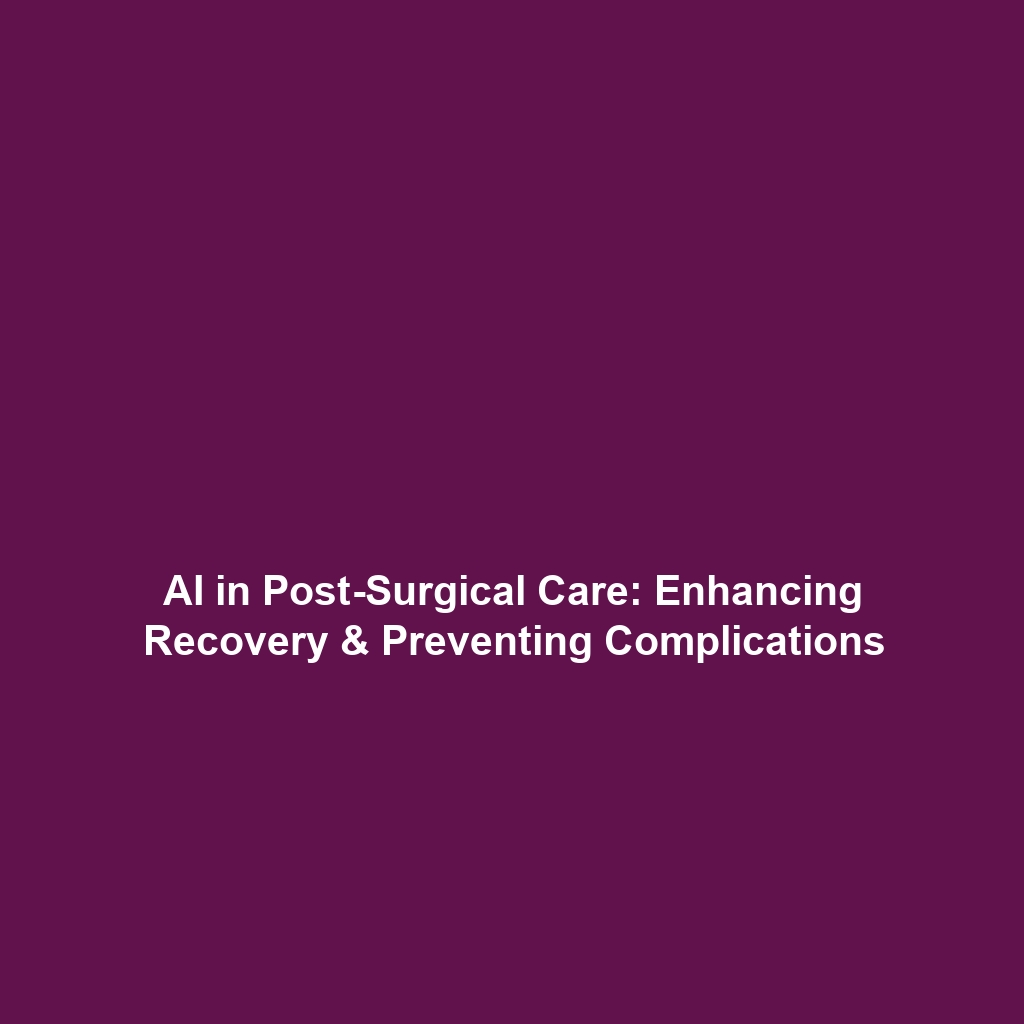Post-Surgical Care: AI in Monitoring Recovery and Preventing Complications
Introduction
As the healthcare industry increasingly embraces artificial intelligence (AI), the realm of post-surgical care stands to benefit immensely. AI in monitoring recovery and preventing complications has emerged as a significant focus area, promising improved patient outcomes and streamlined care processes. With effective monitoring, healthcare providers can quickly identify potential complications and intervene before conditions escalate, thereby enhancing recovery rates and minimizing hospital readmissions.
Key Concepts
The integration of AI in post-surgical care is driven by several key principles:
- Real-time Monitoring: AI tools utilize patient data to monitor vital signs and recovery metrics continuously.
- Predictive Analytics: By analyzing large datasets, AI can predict complications based on historical data and patient profiles.
- Personalized Care: AI technology allows for tailored recovery plans that adapt to individual patient needs, improving engagement and adherence.
This approach exemplifies the transformative potential of AI in Healthcare, merging patient history, clinical guidelines, and machine learning for optimized care delivery.
Applications and Real-World Uses
Several compelling applications demonstrate how Post-Surgical Care: AI in monitoring recovery and preventing complications enhances patient safety and treatment efficacy:
- Wearable Technology: Devices equipped with AI algorithms track recovery indicators such as heart rate and activity levels post-surgery.
- Telemedicine Integration: AI systems analyze patient data during virtual check-ups, allowing clinicians to address potential issues remotely.
- Smart Alerts: Hospital systems equipped with AI can generate alerts for post-operative complications, reducing response times for issues such as infections.
Current Challenges
Despite its promise, the implementation of AI in monitoring recovery faces several challenges:
- Data Privacy Concerns: Patient data handling raises ethical issues around privacy and compliance with regulations.
- Integration with Existing Systems: Many healthcare facilities struggle with integrating AI solutions into pre-existing medical software.
- Training and Acceptance: Resistance from healthcare professionals due to lack of understanding or trust in AI technologies can hinder its adoption.
Future Research and Innovations
The future of Post-Surgical Care: AI in monitoring recovery and preventing complications is bright, with substantial innovations on the horizon:
- Next-Gen Machine Learning: Enhanced algorithms that provide even more accurate predictions of recovery trajectories.
- AI-Supported Robotics: Surgical robots that incorporate real-time monitoring can adapt procedures based on immediate patient feedback.
- Cloud-Based Solutions: Improved data sharing across healthcare institutions can facilitate broader AI applications in monitoring recovery.
Conclusion
In summary, Post-Surgical Care: AI in monitoring recovery and preventing complications is a pivotal advancement within AI in Healthcare. By leveraging AI technologies, healthcare providers can enhance patient safety, improve recovery outcomes, and streamline operations. As research and innovation continue to unfold, we encourage healthcare stakeholders to consider how they can integrate these developments into their practices to optimize patient care. For further reading on AI innovations in healthcare, explore our other articles on AI initiatives in various medical fields.
